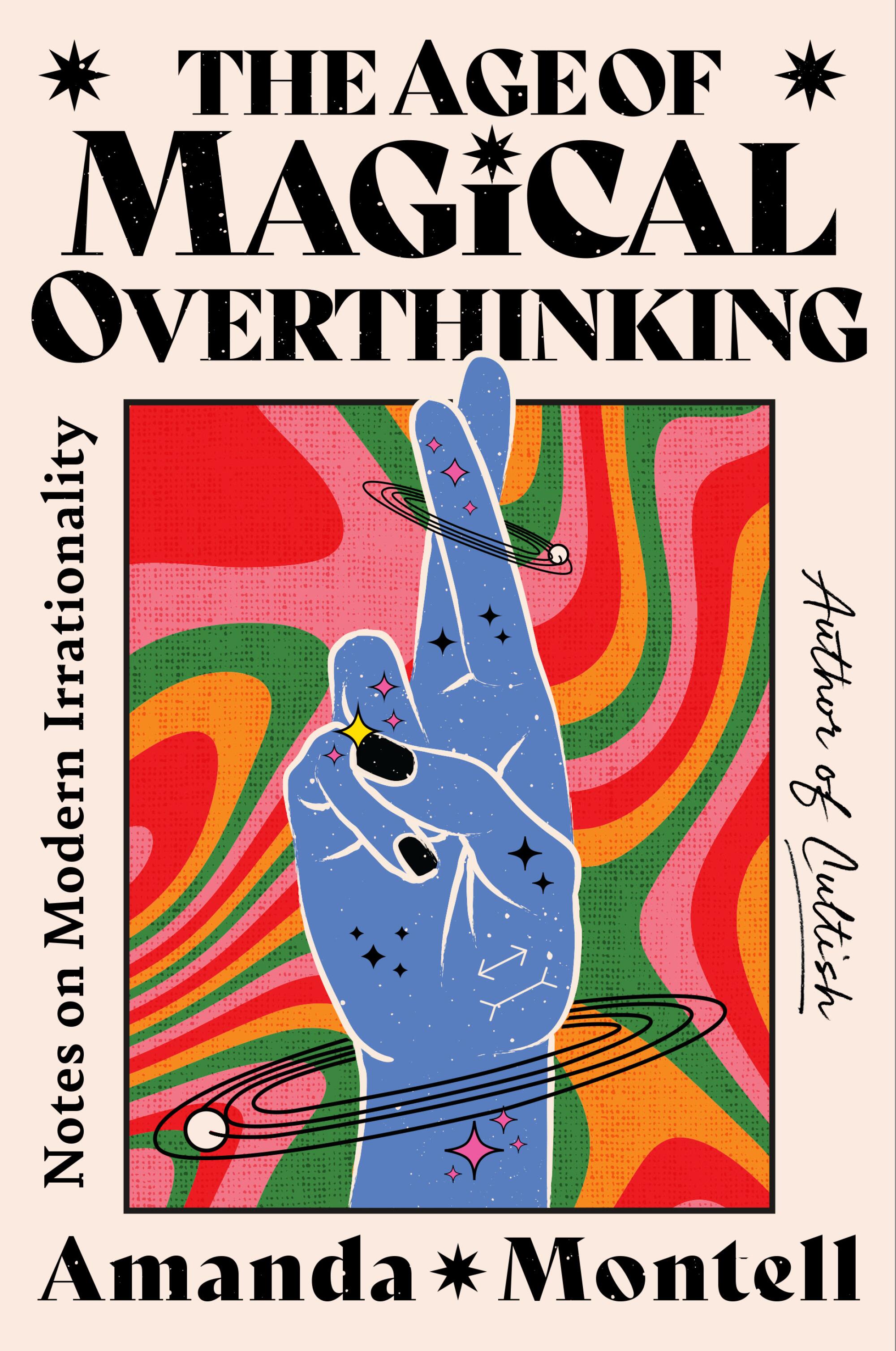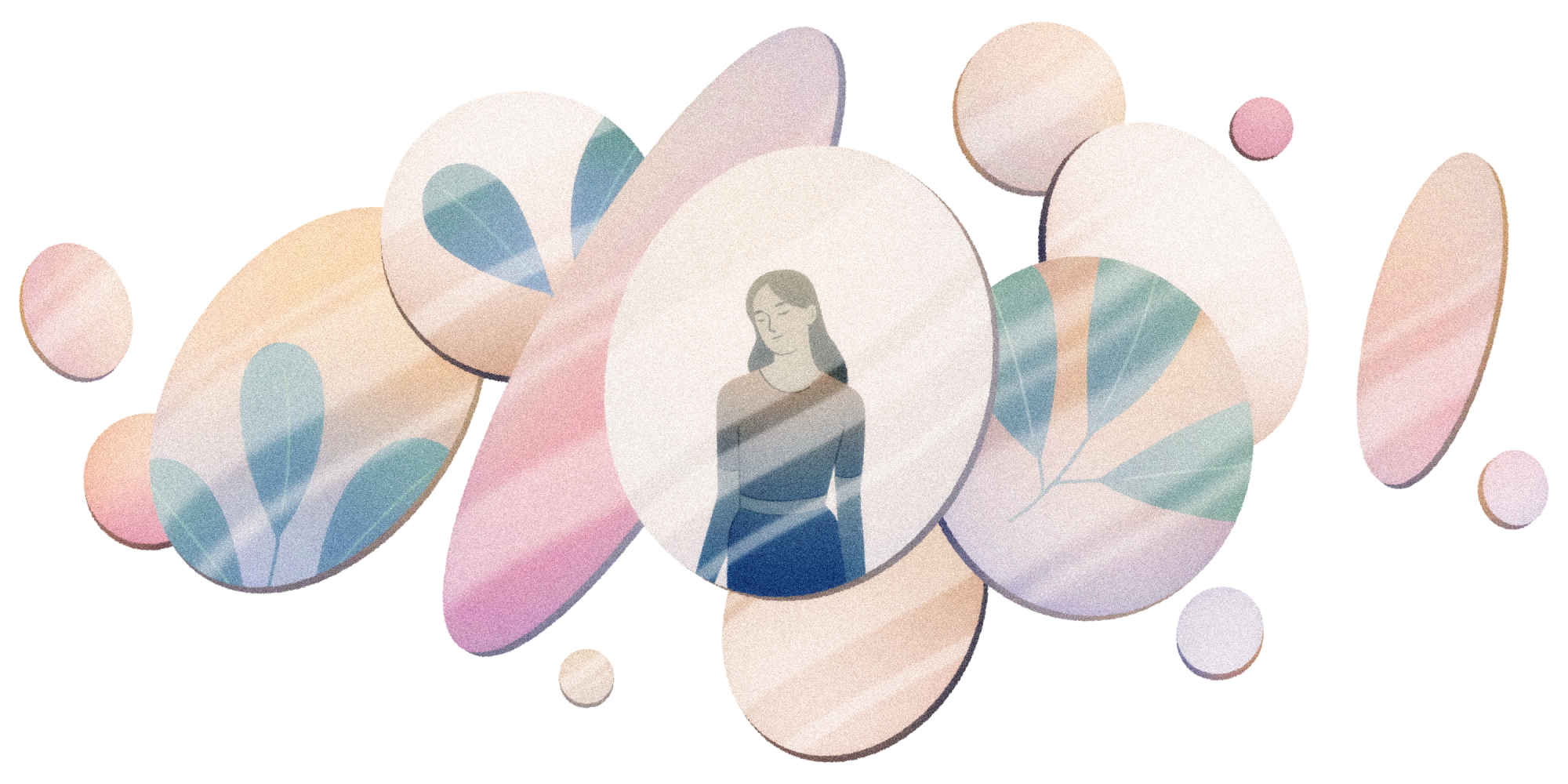
In “The Age of Magical Overthinking,” Amanda Montell observes how information overload and online culture have hijacked our brain’s hard-wired vulnerabilities.
- Share via
While researching “Cultish,” her book on “the language of cults from Scientology to SoulCycle,” writer Amanda Montell kept coming across studies on cognitive biases, or common errors in thinking. Montell couldn’t help noticing that cognitive biases explained more than why some people became fanatics — they also explained many of her “own daily decisions in the information age” and the “seemingly confounding” behavior of other people in her life.
Montell’s new book, “The Age of Magical Overthinking: Notes on Modern Irrationality” (Simon & Schuster), is her attempt to help people notice and name how their minds are making them miserable and then, hopefully, learn to avoid the traps.
Montell spoke to The Times about the particular challenges of social media, what Taylor Swift has to do with the author’s mom, and more. This interview has been edited and condensed for clarity.

Psychologists and economists and other social scientists have been researching cognitive biases for decades, but you argue that understanding them is more important now than ever. Why is that?
Cognitive biases, like the sunk-cost fallacy or recency illusion, are these innate psychological shortcuts that we’ve always taken to make sense of the world enough to survive it. These behaviors have been observed and documented for over 100 years. But they can newly explain so many of the irrationalities that are directly a product of the digital age. While the democratization of information has been incredible and a net positive thing for society, our minds, our amygdalae, have not caught up with the culture that we’ve created.
Shelf Help is a wellness column where we interview researchers, thinkers and writers about their latest books — all with the aim of learning how to live a more complete life.
These psychological shortcuts that we once made to process a much more limited amount of information from the physical world are now being applied to more abstract information — some of which is true, some of which is not — and causing us to have really miserable reactions. So we’re feeling a sort of nebulous, can’t-quite-put-our-finger-on-it sense of ennui, sense of languishing, sense of panic, fear for the future. We’re using these age-old shortcuts that were once very helpful in a new context in which they’re becoming slightly out of date. Cognitive biases can really explain so much of the nonsense that we are exposed to in society these days.
In each chapter, you analyze a different behavior — sometimes cultural, sometimes personal — through the lens of a cognitive bias. The first chapter is about Taylor Swift fans, but it’s also about your mom. How does that chapter’s specific cognitive bias, the halo effect, explain both Swift stans and your own family dynamics?

The halo effect describes our penchant to admire one thing about a person and then jump to the conclusion that they must be perfect overall. This bias stems from the ways we used to identify role models in our communities for survival purposes, but now we’re applying the halo effect to modern parasocial relationships, namely celebrities, in a way that is having serious deleterious consequences.
I came across this pretty fascinating research reflecting how increasing stan worship is actually correlated in interesting ways to parent-child attachment. If we don’t experience enough “positive stressors” from our parental figures and communities in real life, we often look for those things in online spaces and virtual spaces, and that can really set us up for major side effects, from narcissistic tendencies to poor body image to criminality.
The relationship between the surrogate “mother” — that is, the female pop star — and our attachments to our actual mothers is something I was really interested to explore. I talk about my personal experience involving those ideas and my own mom and finally coming around to the notion that my mom was a real person and we were able to move through that with empathy and communication. That goes two ways, but the fact that so many stans perceive celebrities like Taylor Swift as surrogate mothers of sorts is setting everybody up for psychological failure because the mode of communication is one-sided. The surrogate “mother” could never fulfill their wishes or live up to their standards and could also never humanize herself in a way that a mother could.
If we don’t experience enough ‘positive stressors’ from our parental figures and communities in real life, we often look for those things in online spaces and virtual spaces, and that can really set us up for major side effects, from narcissistic tendencies to poor body image to criminality.
— Amanda Montell
In another chapter, you delve into the world of manifestation gurus and argue that their rise can be explained by “proportionality bias.” What is that and how does it work?
Proportionality bias describes our proclivity to assume that a big event or even a big feeling must have had a big cause. It just makes proportional cause-and-effect sense to us to assume that, “Oh, a massive earth-shattering pandemic broke out, that couldn’t have been the result of a bunch of small random minor tragedies all adding up to this big one, instead the government must have engineered it on purpose.”
Manifestation is another misattribution of cause-and-effect, just with a more positive spin: if I got a promotion, it’s because I put a dollar sign on my vision board. But in this time of mass isolation when we feel incredibly out of control and lacking agency in our futures, so many online manifestation gurus have seized our proportionality bias en masse by communicating this very absolutist idea that you can actually control your outcomes and improve your circumstances with your mind as long as you sign up for my $25-a-month course.

One of the major features of the information age, as you call it, is social media. How does social media hijack our mind’s wiring and how can recognizing cognitive biases help us there?
I can talk about this in a personal context. My day job for many years was working in the beauty industry. I thought, “I’m a mole and they’re not going to be able to get me,” and the joke was surely on me because just a couple of years into the beauty industry I felt like someone else’s blond only made me brunet-er.
Then I left the beauty industry to write and thought, “Oh, thank God I’ve been freed from social comparison purgatory.” And again, the joke was on me because now I was comparing myself to other writers, nonfiction authors who are my age and had my same haircut. That was really devastating and caused me a lot of psychological turmoil. In the book, I offer some solutions to combat that zero-sum bias that causes you to go down a spiral.
That’s the false perception that another person’s gain means your loss. And there was a time when another person’s access to food and mates really would mean your deficit, but that is not true in our modern economy. There’s actually a way to build more wealth no matter what area of life you’re talking about, but it’s innate to our species that we experience “win-win denial.”
Especially during times of sociopolitical turbulence, we feel that if the government is helping one group, surely another group must be suffering. There’s fascinating research reflecting that when we feel culturally unmoored, people are more resistant to immigration because they start feeling that scarcity mind-set.
You know, as I’m launching this book, you start to feel a little bit more competitive than you ordinarily would, so I’m truly returning to the ideas of zero-sum bias and win-win denial myself. It’s an ongoing process.

Does knowing and naming these ideas help you fight them?
I will never be able to prevent my instincts that point me in the direction of zero-sum bias or confirmation bias, but I will say that the awareness of them has been so soothing. When someone else’s behavior seems truly inexplicable or evil, even, I can pinpoint, “Oh, that is just overconfidence bias at play” in the same way that I noticed overconfidence bias in my own behavior. Or, “That is zero-sum bias, that is the recency illusion.” It just feels good to have an excuse not to write off your fellow humans being as defective.
TAKEAWAYS
From “The Age of Magical Overthinking”
But I’ve also come across so many studies that had these actionable tidbits of wisdom. One I keep returning to is about additive versus subtractive solutions. I came across this really fascinating study about the tendency to solve problems by adding more variables to the equation even when a much simpler solution would involve taking one or two things away. The study involved a spatial puzzle involving colored blocks and the vast majority of the participants opted for the much more cumbersome additive solution instead of subtracting, because subtraction is just not how our minds are oriented.
It reminded me of a relationship that was not serving me. I thought during our miserable times that what would help us would be adding a vacation or replacing our furniture or some totally over-the-top additive solution when the much better way to approach the problem would be to take something away, to break up, potentially.
I have applied this framework even to minor problems. I was looking at my junk drawer and my first impulse was, I need to go to the Container Store and get some really beautiful drawer organizers. But the much simpler and more effective solution would be to throw this junk away.
Angela Chen is a journalist. Find her work at angelachen.org.
Shelf Help is a new wellness column where we interview researchers, thinkers and writers about their latest books — all with the aim of learning how to live a more complete life. Want to pitch us? Email alyssa.bereznak@latimes.com.
More to Read
Sign up for The Wild
We’ll help you find the best places to hike, bike and run, as well as the perfect silent spots for meditation and yoga.
You may occasionally receive promotional content from the Los Angeles Times.












